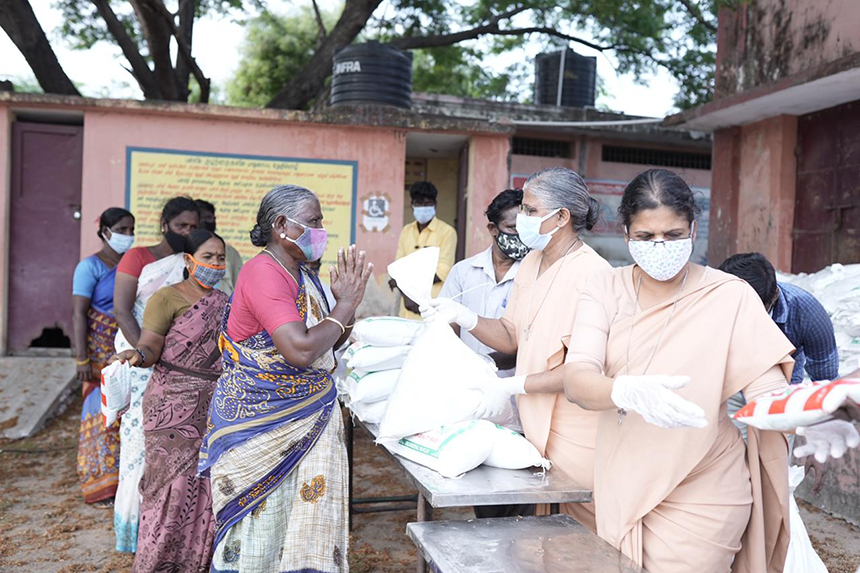
CHARIS Response To COVID-19 In India
Our hearts are breaking as we watch our brother and sisters in India suffer.
It is in times like this that we must stand together in love to support them in any way we can.
CHARIS has committed funds from our reserves to urgently meet the needs and provide support to those who are affected by the ongoing COVID-19 outbreak in India. There is much more that can be done for them if only we can pool our efforts - we need the immediate support from Catholics in Singapore to raise $300,000 to alleviate their suffering as soon as possible.
As India hits the grave milestone of the highest ever single-day spike of almost 380,000 new cases of COVID-19 infections on 29 Apr 2021, and crossing the staggering 18 million mark in total. The sense of helplessness is surpassing all the local and international efforts to support the collapsing healthcare infrastructure.
Understating the human toll of the country’s outbreak, which accounts for nearly half of all new cases in a global surge, the government is reporting more than 300,000+ new infections daily, and the rate of new infections is growing faster than it is in any other nation. It is also feared that the official tally of infections and related deaths is vastly underestimated.
The national capital, Delhi has been held hostage by an unprecedented shortage in medical oxygen; leaving the infected struggling for air.
Burial grounds and crematoria across the country are running out of space at a time when the kicking off of vaccination drives has begun worldwide.
Frontline health workers and volunteers are working round-the-clock to keep up with the pace of health measures. Furnaces have melted down from overuse and additional funeral platforms are being built outside. Such are the heartbreaking messages and haunting images that highlight the formidable second wave of the coronavirus pandemic raging through the country. The Church in India has lost many of its faithful laity and religious brothers and sisters in their pursuit to serve the distressed population.
As an immediate intervention to this humanitarian health crisis, there is an urgent need to reduce the stress on the healthcare system, and to provide an avenue for those who are marginalised to seek care and support.

.png202207200728441721.png)
.jpeg202206270803346095.jpeg)
.jpeg202206270802599528.jpeg)
.jpeg202206270802328823.jpeg)





 Singapore Red Cross helps communities recover from natural disasters and build resilience during peacetime. We go beyond our shores to bring humanitarian aid to those in need. Natural disasters strike without notice but there are systems that can provide forecast and warning based on studies and experiences. When it comes to disaster management, preparedness during peacetime is as important as response after the disaster hits. More about Red Cross Singapore:
Singapore Red Cross helps communities recover from natural disasters and build resilience during peacetime. We go beyond our shores to bring humanitarian aid to those in need. Natural disasters strike without notice but there are systems that can provide forecast and warning based on studies and experiences. When it comes to disaster management, preparedness during peacetime is as important as response after the disaster hits. More about Red Cross Singapore: 